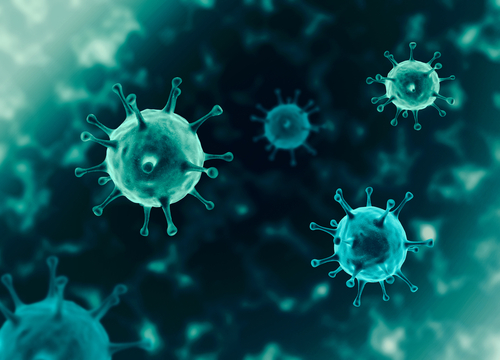
The virus that causes COVID-19 has mutated minimally since December 2019, according to a study by a team of scientists from the Walter Reed Army Institute of Research.
The research team arrived at this conclusion after conducting a genetic analysis of sequences from more than 27,000 individuals infected with COVID-19. The team aligned 18,514 independent virus genome sequences sampled from individuals in 84 countries and scanned them for variations. Analyses reveal low estimates of genetic differentiation following the initial outbreak and indicate that the virus has evolved through a mostly random process rather than through adaptation to the human hosts it encounters.
The fact that the virus has mutated very little suggests that one vaccine would be sufficient to combat global infections, the researchers said.
“Like other reports, we noticed that the D614G mutation in the Spike has rapidly increased in frequency since the beginning of the epidemic, but we could not link this mutation to specific adaptive forces,” said Morgane Rolland, chief of viral genetics and systems serology for the WRAIR Military HIV Research Program. “When viruses replicate and spread in the population, we expect to see some mutations, and some can become fixed very rapidly in an epidemic just by random chance.”
She noted that linking genotypes to phenotypes is complicated and more research is needed to fully understand the functional consequences of the D614G mutation in SARS-CoV-2.
Rolland led the study along with Kayvon Modjarrad, director of the institute’s Emerging Infectious Diseases Program. The Walter Reed Army Institute of Research, headquartered in Silver Spring, Md., is a biomedical research laboratory within the Department of Defense.
“Viral diversity has challenged vaccine development efforts for other viruses such as HIV, influenza, and dengue, but global samples show SARS-CoV-2 to be less diverse than these viruses,” Rolland said. “We can therefore be cautiously optimistic that viral diversity should not be an obstacle for the development of a broadly protective vaccine against COVID-19 infection.”
The findings were published in Proceedings of the National Academy of Sciences.
“Scientists are working hard to accelerate the development of a COVID-19 vaccine that is safe and effective for the entire world, now and in the years to come. These data are critical to informing the field’s collective efforts in getting a vaccine that is rapidly scalable and universally applicable to all populations,” Modjarrad said. “Based upon WRAIR’s long experience developing vaccines for other viruses and recent work on coronaviruses, we have been able to move quickly to accelerate research efforts to combat this pandemic that has threatened global health and military readiness.”




